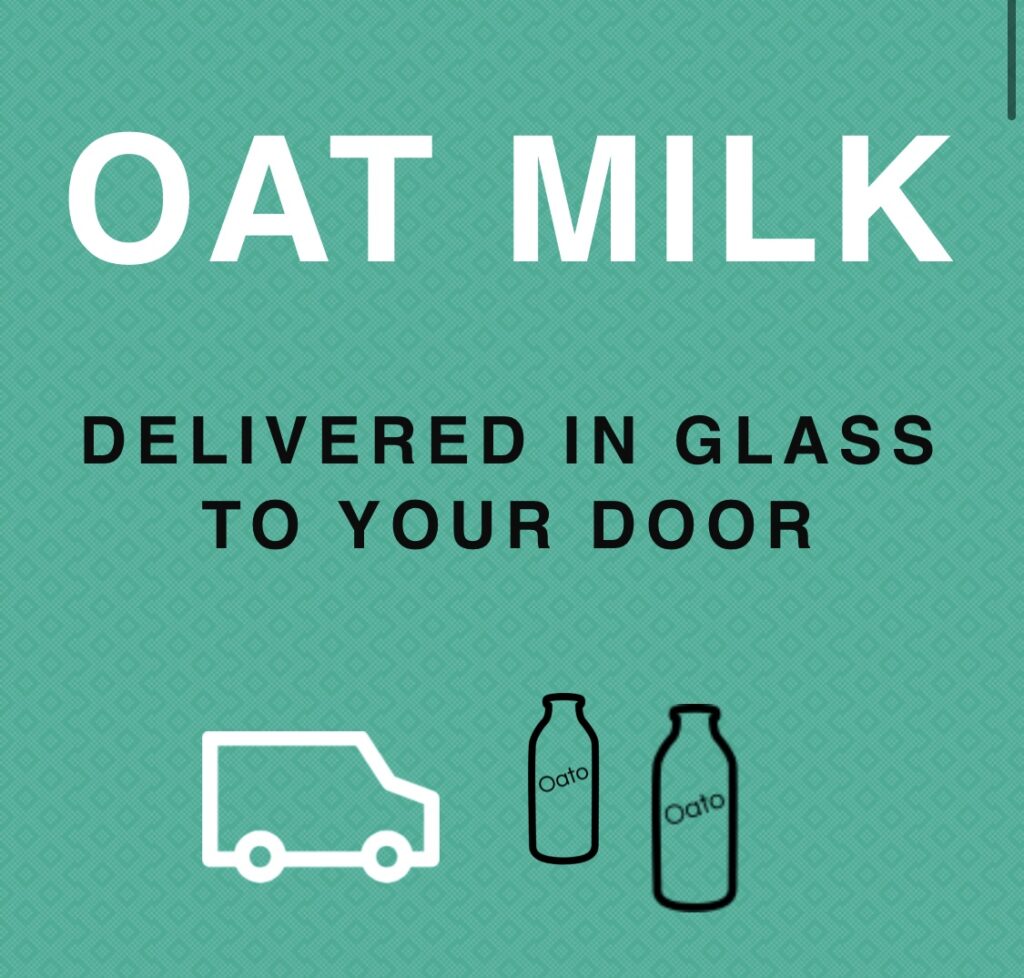‘Pint of Oat’ joins national doorstep milk float deliveries

A Lancashire based oat drink producer, making fresh oat drink from British oats, has struck a national deal that will see their fresh drink distributed in reusable pint glass bottles nationally on milk floats, alongside traditional dairy milk. Oat drink is commonly referred to as Oat Milk.
The national distribution deal with Milk & More means that fresh oat drink will now be delivered in reusable glass pint bottles to doorsteps before 7am across most of England. According to data from Nielsen Scantrack, sales of products made from oat, almond and soya increased by 239% between February 2010 and February 2020. The plant-based food market in the UK has a value approaching £0.5BN. Conversely, since its consumption heyday in the 1950s, 60s and 70s, per-capita consumption of milk in the UK has fallen by a third. Polling indicates that a third of under-35s are cutting back on consuming dairy.
A 2018 Oxford University study found that oat m*lk has a third of the environmental impact as cows’ milk.
The drink is made fresh near Lancaster with oats sourced exclusively from UK farms. Oato’s SALSA accredited site has capacity to meet UK-wide demand.
Carl Hopwood, founder of Oato, said: “We’ve been producing fresh oat drink with great success for local milk rounds. Demand has been growing and we’re thrilled to now be able to deliver to doorsteps across the UK via Milk & More and our network of other distributors. Oato is a fresh product that tastes creamier than long life supermarket alternatives. It needs to be refrigerated, like dairy milk, so once you milk has arrived, pick it up in the morning and pop it in the fridge.”
Oat drink is now a popular choice on cereal, in coffee, tea or in cooking. Oato is lactose, nut, sugar and soy free. It can be micro-foamed for coffee. It is naturally sweetened through enzymes that are used to break down the starch into shorter sugars.
Oato is suitable for vegan diets.
The pint bottle has been an iconic doorstep delivery symbol for more than 100 years. Oato is committed to the pint bottle and to distribution via local milkmen and women. Each bottle is used on average 25 times. The glass is then recycled.
Milkmen first appeared in Britain around 1860, when the first railways enabled fresh milk to arrive in cities from the countryside. By 1880, the milk was delivered in bottles. By 1975, 94% of milk was in glass bottles, but in 1990, supermarkets started offering plastic and carton containers, reducing bottled milk from 94% to 3% by 2016. By 1967, Britain’s milk industry had the largest electrical vehicle fleet in the world.
Currently, Tetrapaks are widely used for daily alternatives and most are UHT processed, meaning they’re months old by the time the consumer actually drinks them.
Tetrapaks are made of many layers of cardboard, plastic and aluminium, making them difficult to recycle. Tetrapak waste is routinely exported specialist recycling centres. Even when recycled they are actually downcycled in an energy and water insensitive process to become filler for materials like concrete and roofing sheets.




